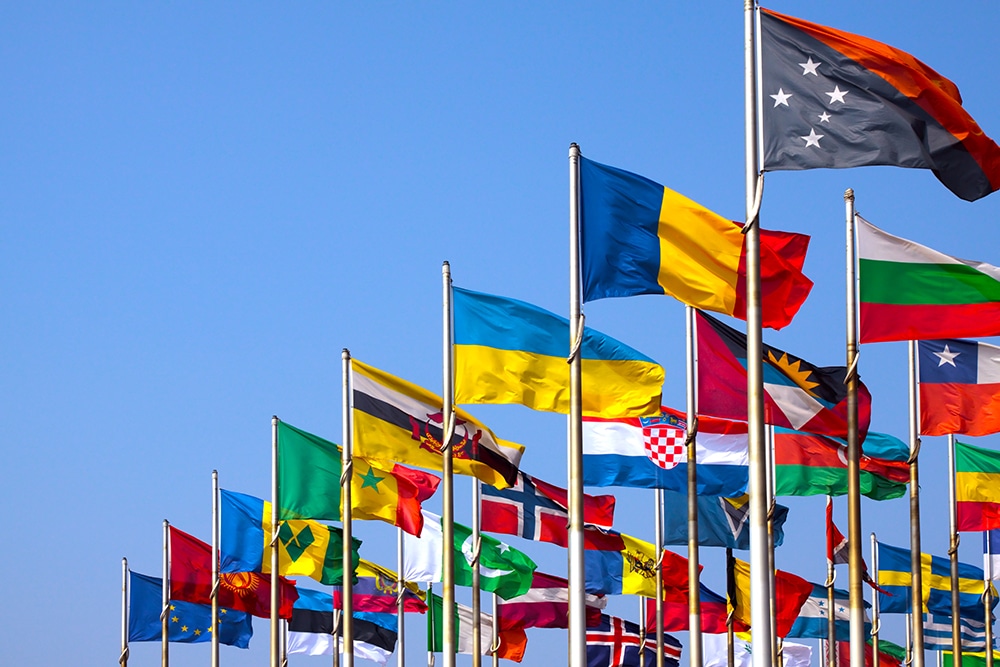By Jacob Baker, President of NAU’s Model United Nations
In a world characterized by diverse cultures, languages and perspectives, finding common ground can be a formidable challenge. However, there exists a platform where young minds gather to bridge these gaps, fostering understanding and cooperation on a global scale. For me, that platform is Model United Nations (MUN). Model UN has had a profound impact on my worldview, communication skills and passion for diplomacy.
One of the most significant things MUN has taught me is the ability to articulate my thoughts effectively. Engaging in spirited debates and negotiations in the committee room has sharpened my public speaking and critical thinking skills. Through MUN, I have learned the art of diplomacy—understanding that effective communication is not about asserting dominance, but about building consensus and finding common ground. MUN is more than just a simulation of international diplomacy; it’s a community of like-minded individuals bound by a shared passion for global affairs.
The friendships I’ve forged with fellow delegates are among the most cherished in my life. As a scared, shy sophomore coming out of the pandemic, MUN was a safe haven for me. I spent my freshman year entirely online and knew nobody on campus. When I entered the Juniper Room at the duBois South Union, I was greeted by a warm and welcoming community of people passionate about making a difference in the world. I will forever be grateful to Sarah Frey and Andrew Svabik, the president and vice president at the time, for taking me under their wing. They talked to me when I had no one to talk to and invited me out to dinners and game nights as much as possible until they got me out of my shell. They mentored me on the proper procedures of MUN, its function and the history of the United Nations. They also became lifelong friends, who have done so much for me in my personal life.
In MUN, I have traveled to Washington, D.C.; Chapel Hill, North Carolina; Los Angeles; and Chicago. In those experiences I learned so much. I have debated topics such as climate change impact on small island states like the Kingdom of Bahrain and the disproportionate impact of climate change on Indigenous communities. I have played a Bavarian police commissioner in communist Bavaria and Claude Louis Hector de Villars, 1st Duke of Villars in the court of Louis XIV. The skills I’ve honed, the friendships I’ve made and the global perspective I’ve gained are invaluable assets that will shape my future endeavors. Whether it be in international relations, diplomacy or any other field, the lessons I’ve learned from Model United Nations will forever be a guiding light.
I now find myself in the shoes of the people who mentored me. In May, I was elected president of Model United Nations at NAU. I never expected to be in this position. It was a whirlwind of emotions, from excitement to apprehension, as I prepared to lead a passionate group of delegates toward new heights. I hope to emulate leadership, effort and friendship to others. I will never forget the friends I’ve made debating at conferences or scootering at midnight around Washington, D.C. to see the Lincoln Memorial and Embassy Row.
It is my goal to give these experiences to others in Model United Nations. But it is also my goal to continue educating students about the importance of the United Nations. As college students, the UN serves as a powerful reminder of our potential to effect positive change on a global scale. It instills in us the values of diplomacy, collaboration and a deep appreciation for the diversity that enriches our world.
The UN is not just an institution; it is a guiding force that empowers us to be active participants in shaping the world we want to see. I believe the words of former Secretary-General Dag Hammarskjold: “Our work for peace must begin within the private world of each of us. To build for man a world without fear, we must be without fear. To build a world of justice, we must be just.”



